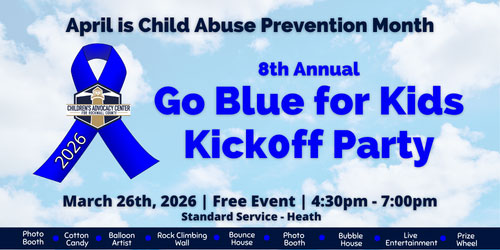Rockwall County, TX (December 17, 2024) – Domestic violence (DV) is a pervasive issue that affects individuals and families across all communities, including Rockwall, Texas. As the holiday season approaches, the need for support and safety becomes even more critical. Increased stress, financial pressures, and social obligations can exacerbate situations where domestic violence exists. My Rockwall Heath Counseling team and the leadership of Blue Ribbon News are committed to raising awareness and equipping our community with practical, actionable steps to help those impacted by DV.
Here are some impactful ways you can make a difference:
1. Share Resources
One of the most effective ways to support survivors of domestic violence is to share information about available resources. Promote local hotlines, shelters, and counseling services through community boards, social media platforms, and public events. Awareness can empower victims to seek the help they need.
Consider printing and distributing resource lists at community centers, schools, and churches. Digital sharing is equally powerful: a quick post on your social media can connect someone in need to life-saving help.
2. Holiday Outreach
The holiday season is often accompanied by heightened emotions and stress, which can amplify unsafe situations at home. Incorporate domestic violence resource information into holiday newsletters, church bulletins, or event flyers. Hosting or attending community holiday events? Ensure that materials about local DV resources are available for distribution. Even a simple sign with hotline numbers at a public gathering can make a significant impact. If you attend an event with women this season, that is a great way to share the word that you are a safe person and you know of safe places if anyone finds themselves in need.
3. Check on Neighbors & Friends – and trust your instincts.
Domestic violence often thrives in isolation. Be vigilant and stay connected with neighbors, families, or individuals who may be at risk. A kind gesture, such as bringing over a holiday treat or initiating a friendly conversation, can provide a lifeline for someone experiencing abuse. Building trust and maintaining consistent contact may give them the courage to open up about their situation.
If you hear or observe troubling signs, such as frequent loud arguments or visible injuries, don’t ignore them. Reach out to local authorities or DV hotlines for guidance on how to proceed safely and effectively. It is better to be safe than sorry.
4. Alcohol Management
The presence of alcohol can exacerbate tension and conflict, often making existing abusive behaviors more dangerous. Encourage responsible consumption, especially during gatherings and celebrations. Hosts of holiday parties can offer non-alcoholic beverage options and remind guests about the importance of moderation. Education about the link between alcohol and domestic violence can also help reduce risk factors.
5. Volunteer Your Time
Domestic violence shelters and support organizations are always in need of volunteers, particularly during the holidays and throughout the winter months. You can assist with donation drives, prepare holiday meals, or participate in awareness campaigns. Your time and effort can bring a sense of hope and normalcy to families who are rebuilding their lives after experiencing abuse.
Many shelters also need help with administrative tasks or child care services, allowing parents to attend counseling sessions or job interviews. Reach out to local organizations to find opportunities that align with your skills and availability. There is always something you can do to help.
6. Donate Generously
Financial contributions are vital for shelters and support services to continue their work. Consider donating funds, clothing, toys, or food to local organizations. Many shelters create wish lists during the holidays, making it easy for community members to fulfill specific needs. Even small donations can make a significant impact. In addition to physical goods, consider donating gift cards for groceries, gas, or clothing stores. These empower survivors to make their own choices as they regain independence. If you are a dentist, women who have been harmed often need dental work. If you are a doctor, usually, women do not have medical resources and need care. There is a role for everyone in this fight against DV.
7. Advocate for Change
Advocacy is a powerful tool in the fight against domestic violence. Work with local leaders to prioritize funding for prevention programs and survivor services. Attend city council meetings or engage in letter-writing campaigns to urge policymakers to support initiatives that protect victims and hold perpetrators accountable. As a community member, you can also help raise awareness by organizing events like DV awareness walks, workshops, or public forums. Encourage open dialogue about the issue to break the stigma and foster a culture of support. Talk to your teens about healthy relationship models. Talk about it in groups of women who may feel they cannot because no one else does.
A Community Effort
Domestic violence is not just a private issue; it’s a community concern that requires collective action. By sharing resources, checking in on neighbors, volunteering, and advocating for systemic change, you can play a role in promoting safety and offering hope to those impacted by DV. Together, we can make Rockwall a place where survivors feel supported and empowered to rebuild their lives.
If you or someone you know is experiencing domestic violence, please get in touch with the following shelters: The Family Place in Dallas, Irving and Grand Prairie, Hope’s Door/New Beginning Center in Plano, The Genesis Center – Kaufman, and Women in Need in Rockwall & Greenville. You may also contact the National Domestic Violence Hotline at 1-800-799-SAFE (7233). Help is available 24/7.
 Guest column by Erin Kincaid, Founder and Clinical Director of Rockwall Heath Counseling. She holds a host of degrees in Psychology, Christian Counseling, Anthropology, and is working toward her PhD in Clinical Counseling. Erin lives in Rockwall with her husband. Look for more of her guest columns in Blue Ribbon News.
Guest column by Erin Kincaid, Founder and Clinical Director of Rockwall Heath Counseling. She holds a host of degrees in Psychology, Christian Counseling, Anthropology, and is working toward her PhD in Clinical Counseling. Erin lives in Rockwall with her husband. Look for more of her guest columns in Blue Ribbon News.






